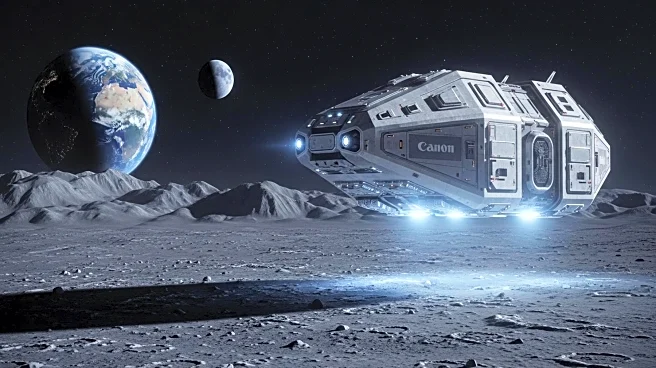What's Happening?
Impulse Space, an in-space propulsion startup, has announced its plans to establish a lunar cargo delivery service, aiming to commence regular Moon missions by 2028. The initiative seeks to capitalize on the growing demand for lunar access, expanding beyond the company's current operations in Low Earth Orbit (LEO) and Geostationary Orbit (GEO). The service will utilize Impulse's Helios propulsion system, which is scheduled for its first mission next year, to transport payloads from LEO to the Moon using an Impulse-designed lander. The lander will employ thruster technology demonstrated on previous flights of Impulse's Mira vehicle, featuring throttleable, restartable engines powered by stable, storable fuel. Impulse Space plans to deliver approximately six tons of hardware to the lunar surface across two missions in 2028.
Why It's Important?
The development of a lunar cargo delivery service by Impulse Space represents a significant advancement in space logistics, potentially reducing costs and increasing efficiency for lunar missions. This initiative could facilitate the establishment of infrastructure on the Moon, supporting both government and commercial endeavors. By leveraging proven technology, Impulse Space aims to meet the increasing demand for lunar access, which is crucial for future human presence on the Moon. The company's approach could provide a competitive edge, especially as other entities like SpaceX prepare their own lunar missions. The success of Impulse's lunar service could lead to more frequent and cost-effective lunar exploration, benefiting industries involved in space research, technology development, and resource extraction.
What's Next?
Impulse Space is focused on meeting its ambitious timeline to initiate lunar flights by 2028. The company has already raised $300 million in a Series C funding round and is investing in expanding its production capacity for Helios kick stages. Impulse plans to increase its workforce from 300 to over 400 employees to support its lunar objectives. If successful, the lunar cargo delivery service could pave the way for robust infrastructure development on the Moon, potentially preceding the operational readiness of SpaceX's Starship. This progress could attract more government and commercial customers interested in lunar exploration and development.










